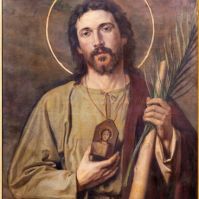 Halloween might be the holiday every child looks forward to all year, but Protestant churches remember October 31st as Reformation Day. It was 500 years ago that Martin Luther wrote his “Ninety-Five Theses” and sent it to the Archbishop of Mainz and Magdeburg. Luther had no idea this essay would divide the church and begin a movement that changed Christian tradition throughout Europe and the entire world.
Halloween might be the holiday every child looks forward to all year, but Protestant churches remember October 31st as Reformation Day. It was 500 years ago that Martin Luther wrote his “Ninety-Five Theses” and sent it to the Archbishop of Mainz and Magdeburg. Luther had no idea this essay would divide the church and begin a movement that changed Christian tradition throughout Europe and the entire world.
What Are Indulgences?
The title of Luther’s essay originally was “Disputation of Martin Luther on the Power and Efficacy of Indulgences.” He was responding to the Catholic Church’s propensity for raising money through the purchase of indulgences. A priest would grant an indulgence as a way of reducing punishment for sin. It was common in the Middle Ages for priests to commercialize indulgences. Luther believed he was writing a scholarly dissertation, not really challenging the practice but searching for answers. He believed that forgiveness was God’s alone to grant. Indulgences were false assurances for Christians.
The letter was sent to the Archbishop and Luther posted a copy at the church on October 31, 1517, a custom within the church. The locals translated the theses from Latin into German and distributed it throughout the country. Thanks to the printing press, copies were able to be quickly published. Within a couple of months, the essay had spread throughout Europe.
What Happened to Luther?
The Archbishop did not answer Luther’s letter, but he did forward the theses to Rome. Luther was summoned to Rome to defend his paper. He was cast as an enemy of the church and considered a heretic. The papal legate demanded that Luther recant his position or be arrested. Luther ran away. The Pope warned Luther that he would be excommunicated unless he recanted. Luther took the edict and publicly set fire to it. He was excommunicated by Pope Leo X in January 1521.
Three months later, Luther appeared before the Diet of Worms. The diet was an assembly of secular authorities of the estates of the Holy Roman Empire. It was held in Worms, a town on Rhine. The assembly asked Luther if the writings were his and if he stood by the contents. After much prayer and consultation from friends and mentors, he told the assembly:
Unless I am convinced by the testimony of the Scriptures or by clear reason (for I do not trust either in the pope or in councils alone, since it is well known that they have often erred and contradicted themselves), I am bound by the Scriptures I have quoted and my conscience is captive to the Word of God. I cannot and will not recant anything, since it is neither safe nor right to go against conscience. May God help me. Amen.
The Diet of Worms drafted an edict declaring Luther to be an outlaw and ordering his arrest. His writings were banned. It was a crime to help him. He was to be apprehended and punished as a heretic. But he had a plan and escaped.
Luther went on to translate the New Testament into German, making the Bible accessible to all the people, not only the priests. He was a hymnist, writing dozens of hymns and inspiring many composers to write music for his songs.
Luther wasn’t without his faults. His final sermon was devoted to expelling the Jews from German territory. He was extremely anti-Semitic throughout his life, and it got worse as his health deteriorated. He also condemned the Turks, or Muslims, as well as the Catholics. It is one of the reasons he might be considered controversial.
Remember Martin Luther on October 31 this year. He had a tremendous impact on the Christian church.



